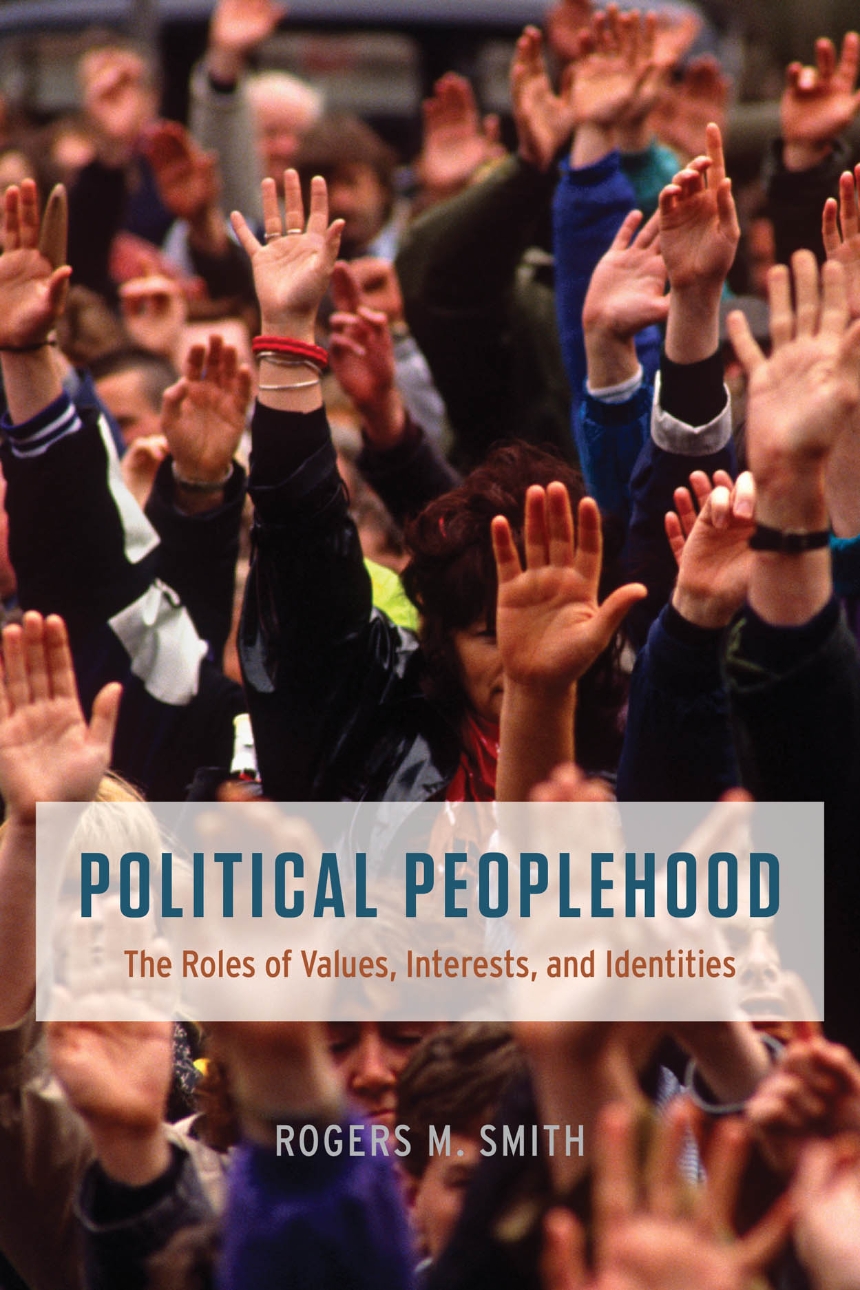Political Peoplehood
The Roles of Values, Interests, and Identities
9780226285092
9780226284934
9780226285122
Political Peoplehood
The Roles of Values, Interests, and Identities
For more than three decades, Rogers M. Smith has been one of the leading scholars of the role of ideas in American politics, policies, and history. Over time, he has developed the concept of “political peoples,” a category that is much broader and more fluid than legal citizenship, enabling Smith to offer rich new analyses of political communities, governing institutions, public policies, and moral debates.
This book gathers Smith’s most important writings on peoplehood to build a coherent theoretical and historical account of what peoplehood has meant in American political life, informed by frequent comparisons to other political societies. From the revolutionary-era adoption of individual rights rhetoric to today’s battles over the place of immigrants in a rapidly diversifying American society, Smith shows how modern America’s growing embrace of overlapping identities is in tension with the providentialism and exceptionalism that continue to make up so much of what many believe it means to be an American.
A major work that brings a lifetime of thought to bear on questions that are as urgent now as they have ever been, Political Peoplehood will be essential reading for social scientists, political philosophers, policy analysts, and historians alike.
This book gathers Smith’s most important writings on peoplehood to build a coherent theoretical and historical account of what peoplehood has meant in American political life, informed by frequent comparisons to other political societies. From the revolutionary-era adoption of individual rights rhetoric to today’s battles over the place of immigrants in a rapidly diversifying American society, Smith shows how modern America’s growing embrace of overlapping identities is in tension with the providentialism and exceptionalism that continue to make up so much of what many believe it means to be an American.
A major work that brings a lifetime of thought to bear on questions that are as urgent now as they have ever been, Political Peoplehood will be essential reading for social scientists, political philosophers, policy analysts, and historians alike.
336 pages | 2 figures | 6 x 9 | © 2015
Philosophy: Philosophy of Society
Political Science: American Government and Politics, Political and Social Theory
Reviews
Table of Contents
Introduction
Part I : Theorizing Peoplehood
ONE / Stories of Peoplehood and the Spiral of Politics
TWO / A Theory of the Politics of People Building
THREE / Narrative Structures and the Politics of Peoplehood (with Meral Ugur Cinar)
FOUR / Personal Stories and Communal Stories in the Politics of Peoplehood
Part II : Exploring American Peoplehood
FIVE / Individual Rights in American Stories of Peoplehood
SIX / Contesting Meaning and Membership in American Peoplehood
Part III : Moderating Peoplehood
SEVEN / From Providentialism and Exceptionalism to a Politics of Moderate Peoplehood
EIGHT / The American “Promiseland” and Mexican Immigrants
NINE / Multiple Citizenships and the Legacies of Imperialism
Epilogue
Acknowledgments
Notes
References
Index
Part I : Theorizing Peoplehood
ONE / Stories of Peoplehood and the Spiral of Politics
TWO / A Theory of the Politics of People Building
THREE / Narrative Structures and the Politics of Peoplehood (with Meral Ugur Cinar)
FOUR / Personal Stories and Communal Stories in the Politics of Peoplehood
Part II : Exploring American Peoplehood
FIVE / Individual Rights in American Stories of Peoplehood
SIX / Contesting Meaning and Membership in American Peoplehood
Part III : Moderating Peoplehood
SEVEN / From Providentialism and Exceptionalism to a Politics of Moderate Peoplehood
EIGHT / The American “Promiseland” and Mexican Immigrants
NINE / Multiple Citizenships and the Legacies of Imperialism
Epilogue
Acknowledgments
Notes
References
Index
